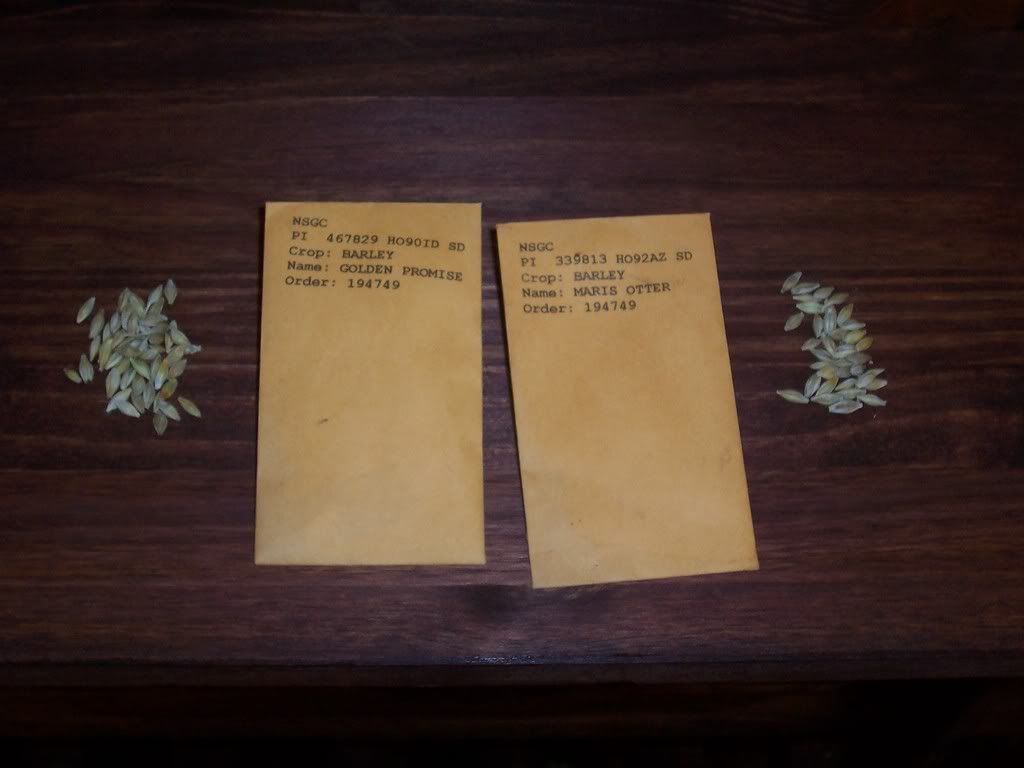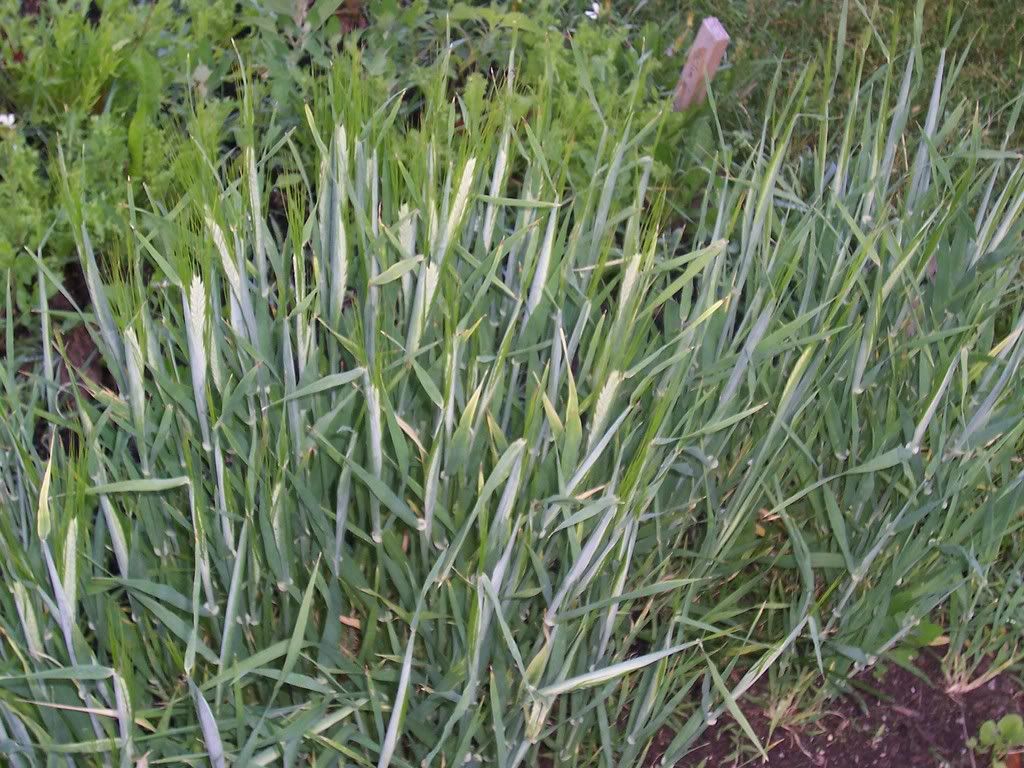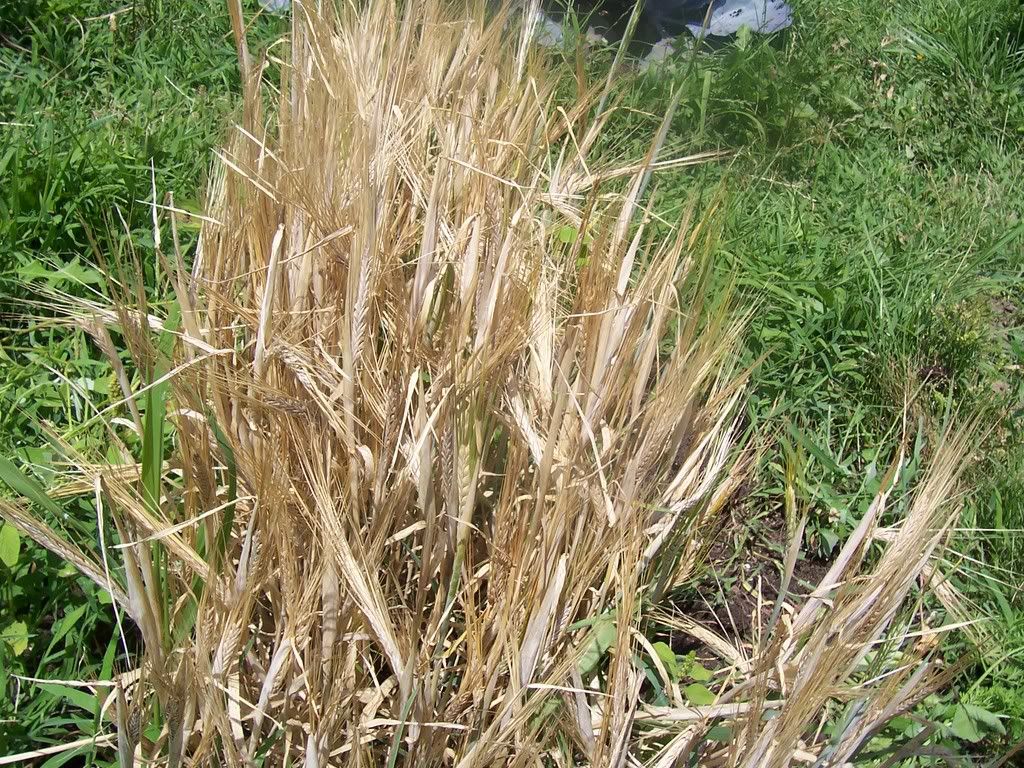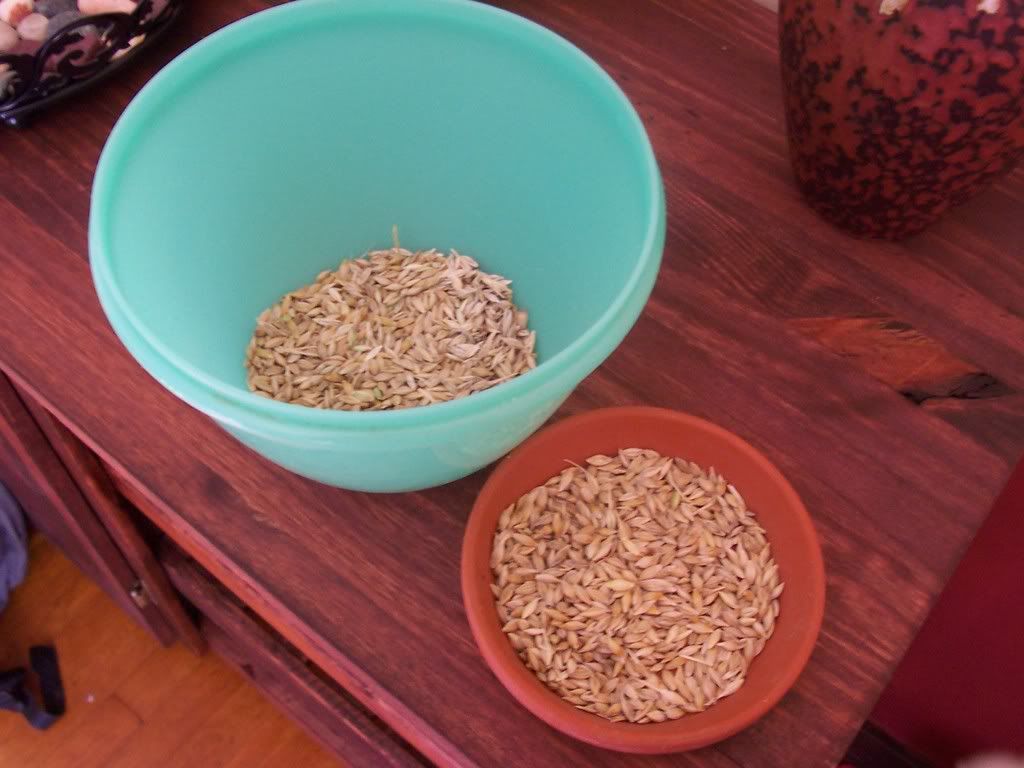effigyoffaith
Well-Known Member
This spring I dedicated a small patch of my vegetable garden to growing two row malting barley. I ordered a sample of two varieties to start with. Maris otter and golden promise.

I planted in the middle of march. Since planting I learned that my climate get too hot in summer for barley and it would be best planted earlier or even in the fall like winter wheat.

The maris otter did very poorly and died before forming seed heads. The golden promise did somewhat better and a portion of the seed head had matured before the plants died in the heat.

After threshing and cleaning, I had nearly a pound of grain, not too bad considering that I only started with an ounce or two.

This fall I will plant some of my saved seed and maybe order a couple of new varieties too test. Hopefully I will be able to find and variety and planting time that complement my climate. I know this project is kind of silly, but I have an idea of a completely home grown beer that I can't really shake. Has anyone else grown any barley? Do you have any tips? Do you know of any other two row malting varieties that I should try?
Cheers
Andrew

I planted in the middle of march. Since planting I learned that my climate get too hot in summer for barley and it would be best planted earlier or even in the fall like winter wheat.

The maris otter did very poorly and died before forming seed heads. The golden promise did somewhat better and a portion of the seed head had matured before the plants died in the heat.

After threshing and cleaning, I had nearly a pound of grain, not too bad considering that I only started with an ounce or two.

This fall I will plant some of my saved seed and maybe order a couple of new varieties too test. Hopefully I will be able to find and variety and planting time that complement my climate. I know this project is kind of silly, but I have an idea of a completely home grown beer that I can't really shake. Has anyone else grown any barley? Do you have any tips? Do you know of any other two row malting varieties that I should try?
Cheers
Andrew






















































![Craft A Brew - Safale S-04 Dry Yeast - Fermentis - English Ale Dry Yeast - For English and American Ales and Hard Apple Ciders - Ingredients for Home Brewing - Beer Making Supplies - [1 Pack]](https://m.media-amazon.com/images/I/41fVGNh6JfL._SL500_.jpg)



